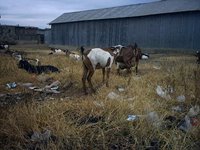:::::::::::::::::::::::::::::::::::::::::::::::::::::::::::::::::::::::::::::::::::::::::::::::::::::
Graduation ceremony
***** Location: Kenya
***** Season: Short rains
***** Category: Observances
*****************************
Explanation
While graduation ceremonies can take place in Kenya at various times of year, they are particularly associated with the month of October, during the short rains, when most universities hold theirs.
Kenyan graduation ceremonies are all-day affairs. Each graduand receives a small number of admission cards for family, sponsors and friends, and those who are invited count themselves among the lucky favourites. Both graduands and guests need to be ready and seated in the right place in good time before the ceremony starts.
Invariably, the right place is an open sports field or park in front of a roofed dais set out for the Chancellor and guests of honour, and equally invariably, the day is hot and sunny (or, on rare occasions, drowned in rainfall from early afternoon -- this would be regarded as an inconvenience and a blessing). Graduands and their guests bring their umbrellas (often large golf umbrellas), to shield themselves from the sun or rai) and create extra colour.
Like all Kenyan festivals, graduations are colourful occasions. Black gowns, hoods and mortar boards are hired and worn by the graduands, British style -- but the trimmings on the hoods are bright and cheerful, African style. Many of the women wear African dress under their gowns, and Maasais take great pride in donning their full facial ornaments.

[Photo by Eric Kadenge : http://daystarus.org/Grad05/20.jpg]
The Chancellor makes a lengthy speech, which may or may not be reported on the television news in the evening. The presentation itself can be an interminable affair, when students are often asked to present themselves in groups according to the final result achieved. In order to save time, some universities may ask students to stand up in their places when their names are called, and then sit again, without walking forward to receive their degrees.
There are currently six State universities in Kenya, plus a growing number of recognised private universities of high standard. All of these, as well as the other third-level colleges, hold graduation ceremonies.

[Photo by Eric Kadenge : http://daystarus.org/Grad05/19.jpg]
On the day prior to the graduation (the rehearsal day) and the day of the ceremony itself, the city is awash with graduates showing off their gear and having their photographs taken in the famous beauty spots, sometimes with admiring and envious street children looking on. Thanksgiving prayers in churches, and receptions for family and friends, are held after the ceremony; more photographs are taken, piles of food consumed, hugs and gifts given and received, speeches by all important guests delivered. These are opportunities for the fresh graduates to thank all those who made it possible -- even well-off Kenyan parents would be hard pushed to raise university fees for all the necessary years on their own. Other family members will have helped, as will well-wishers and sometimes even non governmental organisations (NGOs). All of them have cause for celebration on the great day.
And whether the sun shines or the showers descend, it is a day of blessing for all.
Isabelle Prondzynski
xxxxxxxxxxxxxxxxxxxxxxxxxxxxxxxxx
Picture taken by Eric Kadenge at the 2005 graduation ceremony of Daystar University (a private university in Nairobi) :

[Photo : http://daystarus.org/Grad05/1.jpg]
Plenty more beautiful photographs of the same occasion -- the site takes a while to load, but is well worth the wait!
http://daystarus.org/Grad05/Grad2005.htm
xxxxxxxxxxxxxxxxxxxxxxxxxxxxxxxxxx
Why universities missed the mark
Story by SAMUEL SIRINGI
Daily Nation, 14 October 2005
For the first time, two state universities – Nairobi and Kenyatta – will hold their graduation ceremonies on the same day. Both ceremonies take place today.
At the University of Nairobi a new system, in which only an estimated 1,000 students from three colleges will graduate, will be part of a series of reforms taking place under the stewardship of chancellor Joe Wanjui and vice chancellor George Magoha.
The university plans another graduation ceremony for students from other colleges in December. This is expected to bring the number of such fetes to three annually.
Today's 33rd ceremony will be for students from the colleges of agriculture and veterinary sciences, architecture and engineering, and biological and physical sciences.
Kenyatta University's graduation ceremony is also unique in the sense that, though the main occasion takes place today, a special ceremony, in which chancellor Harris Mule awarded Tanzanian President Benjamin Mkapa with a honorary degree, was held on Wednesday.
Yet that is as far as the good news goes.
Only last Monday, local universities were reported to be lagging behind in research. The diminished quality of graduates they produce was also reviewed.
According to the World Universities Ranking report by Europe-based international organisation Internet Lab, Kenyan universities are ranked lower than their counterparts in the region. The organisation does research on science, technology and higher education.
The University of Nairobi was ranked 24th in Africa, following University of Dar es Salaam which was ranked 13th. Uganda's Makerere University was placed 18th. Globally, they were ranked 4,385, 2,576 and 3,505 respectively.
Ranked 49th in Africa and 5,986 worldwide second in Kenya was Moi University, while the United States International University was rated 61 in Africa and 6,373 globally. Kenyatta University was ranked 74 and 6,813, completing the list of Kenyan university's on the continental map of 100 best universities.
Egerton, Jomo Kenyatta University of Agriculture and Maseno did not make it to the list of Africa's top 100 universities.
The study was based on a number of parameters, including university's research outputs and general contribution to new knowledge.
State funding to public universities has been dwindling over time after the Government shifted its focus to basic education. Since public universities have never revised their fees, they have only struggled to meet their mission. The State only sends Sh70,000 per student to the universities directly, though students can individually apply for Sh55,000 in government loans.
The government funding criteria is irrational to some degree as some students in courses such as medicine and engineering require more funds to train than students studying humanities. Experts have proposed that the Government pegs funding on the cost of each individual course.
The diminishing budgets to public universities have meant that salaries for lecturers remain low, while funding for research is hardly available. The situation has forced lecturers to resort to moonlighting to make ends meet.
At Kenyatta University, for example, the situation is grim. The institution is currently reeling under a huge financial deficit following Treasury's allocation of Sh1.2 billion to the college, far less than Kenyatta University's annual wage bill of Sh1.8 billion. It means the Sh555 million deficit would have to be sought from elsewhere, mainly from the self-sponsored academic programmes.
Overall, all local public universities are seeking to plug a Sh800 million budget deficit to pay their staff salaries, especially after the Government revised salaries for lecturers. Keen to narrow the budget gaps, universities have been admitting many students to parallel degree programmes, which some argue compromises the quality of academic standards.
These are some of the factors that point to the fact that the World Universities Ranking, could be credible. In any case, the University of Nairobi, ranked 24 in Africa, is believed to be the leading one locally.
http://www.nationmedia.com/dailynation/nmgcontententry.asp?category_id=39&newsid=59267
xxxxxxxxxxxxxxxxxxxxxxxxxxxxx
Two universities to enrol more
Story by RICHARD CHESOS and JIBRIL ADAN
Daily Nation, 15 October 2005
Two of the country's public universities will enrol more students once they adopt a new system in which admission would not be pegged on bed capacity.
University of Nairobi chancellor Joe Wanjui and his Kenyatta University counterpart Harris Mule said the move would see most of the 50,000 students locked out of public universities yearly being admitted as day scholars. Although about 60,000 students score at least a C+ in the Kenya Certificate of Secondary Education examination every year, Nairobi, Kenyatta, Jomo Kenyatta, Egerton, Moi and Maseno admit only 10,000. Parents and secondary school heads have been asking the public universities to delink admission from boarding space, saying the scheme had prevented qualified students from accessing higher education.
Speaking while presiding over the university's 33rd graduation ceremony, Dr Wanjui regretted that some of the 50,000 qualified students, locked out of the university yearly, did not even get middle-level training opportunities.
Some 920 graduands from the colleges of Architecture and Engineering, Agriculture and Veterinary Sciences and Biological and Physical Sciences were awarded degrees and diplomas during the ceremony whose theme was, Towards World CLass Excellence. The next would be held on December 9, this year.
Dr Mule, while presiding over KU's 20th graduation ceremony in which 2,352 graduands received degrees and diplomas, said: "It was a big challenge for the Government and universities to come up with innovative ways to accommodate the majority of students who qualify for higher education but do not get access."
http://www.nationmedia.com/dailynation/nmgcontententry.asp?category_id=1&newsid=59365
xxxxxxxxxxxxxxxxxxxxxxxxxxxxx
Honorary degrees :
Honorary degrees are usually -- but not always -- presented on the same day that other degrees are conferred. The University of Nairobi now has a lengthy list of honorary degrees conferred over the years :
http://www.uonbi.ac.ke/varsity_focus/degree_awards.htm

[Photo : http://www.uonbi.ac.ke/varsity_focus/images/31.JPG]
Prof. Richard D. Keynes - Doctor of Science
In recognition of a distinguished physiologist who has made contribution to the understanding of electro-physiological processes and to international science. Honouring a true friend of the University.
Mkapa receives Kenyatta University honorary degree
Story by NATION Reporter, 13 October 2005
Tanzanian President Benjamin Mkapa was yesterday awarded an honorary degree by Kenyatta University. With the Doctor of Letters degree he becomes the first sitting president of a foreign country to be given such an honour by a Kenyan university.

[Photo : Fredrick Onyango
http://www.nationmedia.com/dailynation/images/news/mkapa13102005.jpg]
Tanzanian President Benjamin Mkapa's robe is adjusted by the Kenyatta University dean school of humanities, Prof Mary Getui, for the conferment of an honorary degree on the campus yesterday.
He was honoured for his contribution to the fight against poverty and the promotion of economic development. The university also considered his role in the revival of the East African Community.
http://www.nationmedia.com/dailynation/nmgcontententry.asp?category_id=1&newsid=59224
*****************************
Worldwide use
See the main Graduation (sotsugyoo, Japan) page in the Worldkigo Database
*****************************
Things found on the way
*****************************
HAIKU
black and blue
shining among the stars
my lovely child

[Photo by Eric Kadenge : http://daystarus.org/Grad05/18.jpg]
arm in arm
blow a kiss to the street girl --
graduate tomboys
Isabelle Prondzynski
:::::::::::::::::::::::::::::::::::::::::::::::::::::::::::::::::::::::::::::::::::::::::::::::::::::
Graduation 2009
Shiki Monthly Kukai, June 2009
orphan girl --
she graduates without a gown
or a relative
~ Patrick Wafula
anxious moment
waiting to hear his name —
a graduate eager
~ Adan Issak
graduation day —
an old woman embraces
her son
~ Hussein Haji
the shortest girl
graduating with a diploma —
jubilant parents
~ Catherine Nyambura
chilly morning —
cheers from the crowd
to jubilant graduates
~ Kisilu Peacock
sunny day —
graduates sweating
under a tent
~ Busigwa Peacock
graduation day —
students rush for space
in their gowns
~ Aineah Peacock
graduation day —
a drunken man in the crowd
disrupts the ceremony
~ Khadiah Rajab
graduation day —
anxious students welcome
their vice chancellor
~ Andrew Otinga
calm day —
students gather in the hall
for graduation
~ Amuwa Devis
a lame girl
graduating with a degree—
bright day
~ Stephen Macharia
beaming faces —
my brother graduating in
a black gown
~ Kevin Wanjala
jubilant students
graduating in red gowns —
bright day
~ Antony Mwangi
crippled boy
graduates successfully —
jubilant parents
~ Emmanuel Mwita
graduation day —
the President in a black gown
presides
~ Elkana Migaka
students in black gowns
shouting and screaming for joy—
graduation
~ Mary Wambui
*****************************
Related words
***** Graduation (sotsugyoo, Japan)
:::::::::::::::::::::::::::::::::::::::::::::::::::::::::::::::::::::::::::::::::::::::::::::::::::::
Back to the Worldkigo Index
:::::::::::::::::::::::::::::::::::::::::::::::::::::::::::::::::::::::::::::::::::::::::::::::::::::










